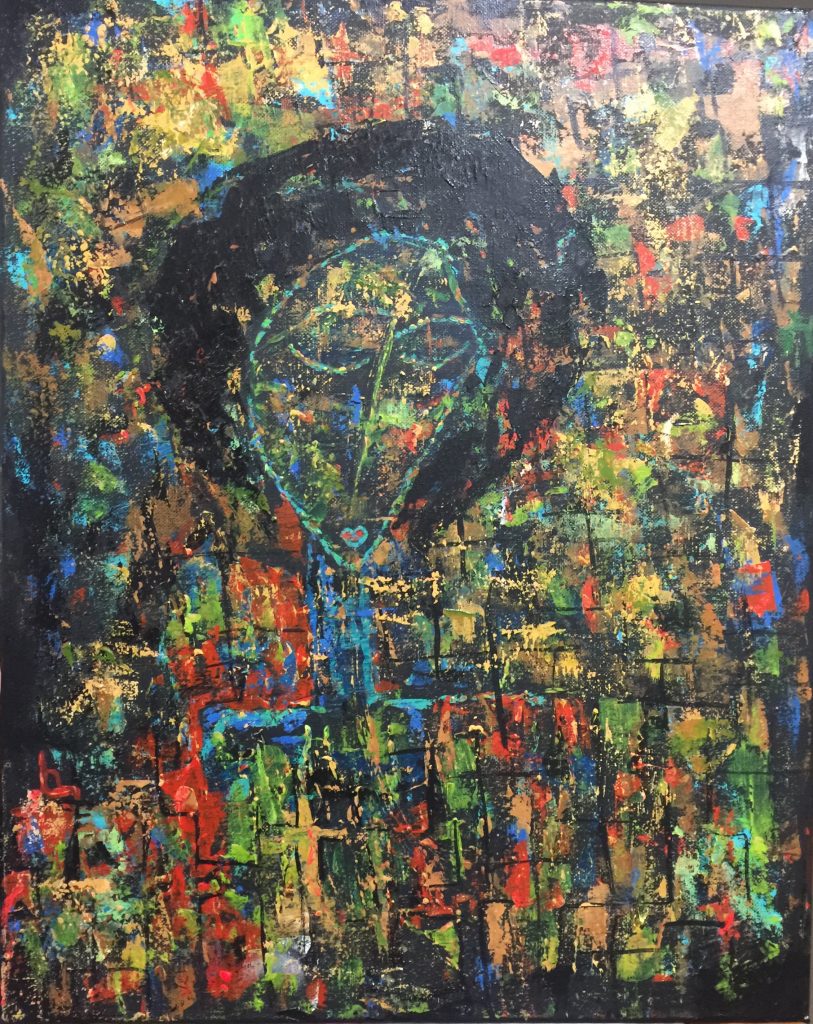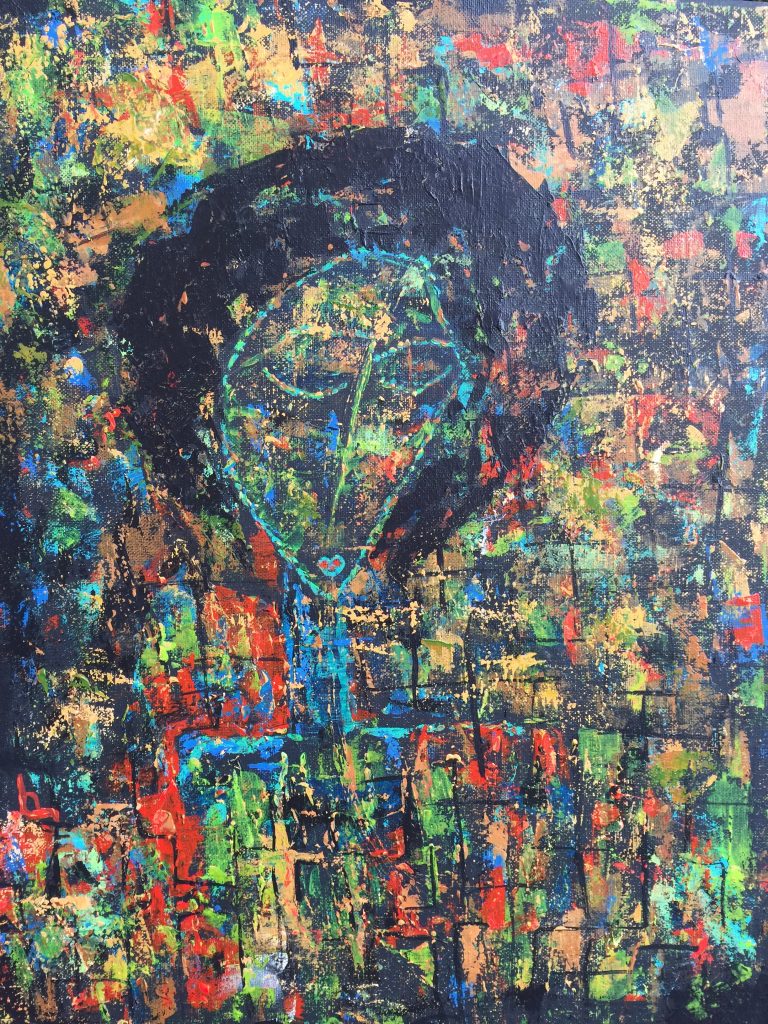Dear friends,
I love firsts, and this one is extra special: Lily and I are collaborating on Stop & Think with a brief essay from me and a brilliant painting from her.
Our shared theme is “groaning,” an experience that becomes increasingly familiar to us amidst pandemic, war, and other forms of conflict and loss. Lily’s painting is entitled Loss and Hope (March 2022). It’s a profound reflection on Ethiopian motherhood with many subtle meanings layered within it. Special thanks to Lily for sharing her sacred gift with me and the world.
Our work was published in this month’s edition of Cultivare, an exceptionally rich online magazine edited by my spiritual director Dr. Duane Grobman. I warmly encourage you to subscribe to Cultivare (it’s free) and read the entire edition. I hope you find it as illuminating and encouraging as I have. Special thanks to Duane for inviting our work!
Yours with groaning and gratitude,
Andrew and Lily
Loss and Hope by Lily DeCort

Groaning: Love in Pain
My world shook, and I began to groan.
The text on my phone said that Aaron had died of cancer. Years before, his younger brother Matt, who was my best friend, had died in a terrible car crash. As Aaron fought for his life, my friends’ beloved mother told me through uncontrollable tears, “I cannot bear to lose both of my children!” She said that God couldn’t let this happen, and we prayed earnestly against it. But the unbearable happened again.
This text arrived in the midst of our global pandemic, which was taking millions of our loved ones, irrespective of our fragile identities and borders. My wife Lily and I were in Ethiopia, our beloved home which remains locked in the world’s most devastating civil war. Displacement, destruction, and death were our community’s daily meditation. Amid pandemic and war, we ourselves were sheltering in a safe house due to the enraged death threats I was getting because of my work seeking to build bridges between polarized leaders. And then Aaron, an ocean away but in the heart of my heart, shattering like shot glass.
We groaned, and groaned; and groaned. Our world felt like a lachrymose onion, peeling only to reveal yet another layer of loss and grief, again and again. We groaned for Aaron’s wife and children, for his parents, for Matt, for the families who lost loved ones to Covid, for our terrified neighbors amidst the hell of war, for ourselves and our ambient sense of devastated ruin, near and far.
We groan when the pain is too excruciating for words, when our inner ache is overwhelming and we don’t know what comes next or how we will survive it. We groan when all we really have is a storm cloud of tears, unanswered questions, and a volcanic cry of distress exploding inside. We groan when we love and hope and rebelliously, defiantly refuse to stop loving and hoping, despite the pain.
Groaning is a red thread in our experience and across the Bible. The Hebrew people groan in their slavery (Exodus 2:23-24). Job groans with the death of his children (Job 3:24). Jerusalem groans amidst a devastating invasion (Lamentations 1:11). The prophets groan with injustice (Jeremiah 45:3; Ezekiel 21:6).
But Paul goes further, into a mystery that keeps faith credible for me: God groans (Romans 8:23-26). And this means that our groaning is part of a divine labor, a holy travail at the heart of reality, what Kierkegaard called a covenant of tears with all who suffer. Somehow our groaning – our embodied revolt against destruction and separation – is a wordless trace of our immortal, indestructible togetherness with God (2 Corinthians 5:1-4).
Of course, God’s groaning doesn’t make ours any less grueling. But we don’t groan alone or without hope. And we don’t need to deny or suppress our groaning. In fact, allowing ourselves to groan together, united in pain, may be one of the greatest forces for healing in our world. It’s an honest intercession that says we’re hurting and need compassion and don’t want others to suffer.
Somehow our most intimate agony can become a birth place that opens to new beginnings of life that we can’t fully imagine but irrepressibly long for. Groaning is the sacred protest of divine love in pain.
Let us groan together with God until there is no more suffering or separation.




